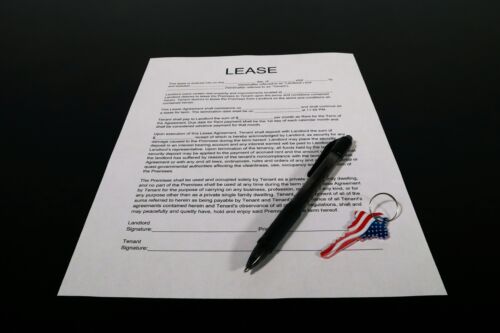



A recent significant decision from the Virginia Court of Appeals addresses two key aspects of commercial lease disputes: the validity of acceleration of rent clauses; and, a commercial landlord’s duty to mitigate damages upon tenant abandonment. Bistro Manila LLC v. Alvah I LLC, 83 Va. App. 300 (2025) validates rent acceleration clauses as enforceable liquidated damages provisions, provided they include mechanisms to prevent over-recovery. The decision also supports the rights of commercial landlords in lease disputes by upholding longstanding Virginia common law confirming that commercial landlords have no duty to mitigate damages after a tenant abandons the property. This ruling provides clarity and stability for landlords by reinforcing contract enforcement in a market where tenant defaults can significantly impact a property owner’s financial security.
The case arose from a commercial lease agreement between the landlords, Alvah I, LLC and Alvah II, LLC (collectively, “Alvah,”), and the tenant, Bistro Manila, LLC, along with individual guarantors. The lease, which was for restaurant space in Alvah's shopping center, contained critical lease provisions, including:
Bistro Manila operated the restaurant from September 2020 until January 2022, when financial strain from COVID-19 forced it to close. Bistro Manila paid rent through February 2022 but then stopped and abandoned the premises after receiving a notice from Alvah demanding payment or vacation of the premises. Bistro Manila claimed it proposed a substitute tenant, but Alvah did not respond. Alvah subsequently filed suit for breach of the lease, seeking accelerated rent exceeding $410,000, plus attorney fees.
The Circuit Court of Stafford County, ruled in Alvah’s favor, granting $410,391.77 in damages and $18,000 in attorney fees. The court found Bistro Manila to be in breach of the lease, affirmed that Alvah had no duty to mitigate damages through reletting the premises, and enforced the lease’s rent acceleration clause. Bistro Manila appealed, presenting three challenges to the Circuit Court’s ruling, two of which are reviewed here, including enforceability of the acceleration clause and the absence of a landlord’s duty to mitigate damages. The Court of Appeals affirmed the Circuit Court’s decision, grounding its reasoning in Virginia common law, statutory interpretation, and contract principles.
After first addressing a jurisdictional issue, the central issue was whether Alvah had a common-law duty to mitigate its damages by reletting the premises after abandonment. Upon determining that substantial evidence supported a finding of abandonment, including nonpayment and vacancy, the Bistro court then looked to Crowder v. Virginian Bank of Commerce, 127 Va. 299 (1920) (the longstanding and controlling opinion on this issue), and Virginia Code § 55.1-1414 (which addresses disbursement of tenant’s personal property upon abandonment of commercial rental property), to determine that no such duty applies to commercial landlords. Crowder maintains that when a commercial tenant abandons a property before the expiration of the lease, the landlord has the option of re-letting the property or permitting the property to remain vacant and recovering the rent for the remainder of the term. Crowder, at 304. Bistro Manila’s lease clause governing discretionary reletting aligned with Crowder, and the court emphasized: “Under established Virginia law, there is no duty for a landlord to mitigate damages under a commercial lease where a tenant abandons a property.” The court refused to judicially impose a new duty, deferring to the legislature and noting the General Assembly's choice not to extend residential protections to commercial contexts.
As a second issue, and a matter of first impression, the Court of Appeals evaluated whether the acceleration clause constituted an unenforceable penalty. Applying the reasoning found in Boots, Inc. v. Singh, 274 Va. 513 (2007), the court held that a tenant is required to show gross disproportionality to actual damages. Accordingly, the Bistro court upheld the lease provision, noting that the lease contained a method for crediting reletting rents, thus preventing double recovery: “Because this arrangement establishes a mechanism that could protect against the runaway damages and ‘double recovery’ Bistro Manila envisions by ensuring that unpaid liquidated damages track actual damages, Bistro Manila has failed to show that the liquidated damages here are ‘grossly in excess of the actual damages suffered by the non-breaching party.’”
The court's deference to lease terms and common law prioritizes landlord protections in commercial lease negotiations. By holding there is no duty upon a landlord to mitigate provides a level of discretion to commercial landlords to effectively manage vacant properties without the pressure to relet immediately. This can be advantageous in difficult or volatile markets where the overall property – including the abandoning tenant – is benefited by the landlord’s ability to hold out for better tenants or higher rents, which, in turn, maximizes long-term value. Small businesses are not disadvantaged by Bistro’s ruling; rather, they remain free to contract, to negotiate terms at the outset of a lease, and, to remain accountable to their agreements.
The Bistro ruling affirms a landlord’s discretion in reletting abandoned commercial premises by not forcing the landlord to rush into reletting to the first available tenant, and validates rent acceleration clauses as reasonable tools for landlords to secure predictable recoveries. Landlords now can proceed with confidence, ensuring quicker recovery of losses and deterring abandonment by tenants. This is especially important where post-COVID uncertainties linger in the commercial leasing and retail industries. The Bistro decision benefits Virginia's commercial leasing market by promoting a more stable and investor-friendly environment overall.
If you have questions about this article, or about commercial landlord and tenant disputes in general, please contact Denise Reverski (dreverski@setlifflaw.com) at (804) 377-1272 or Steve Setliff (ssetliff@setlifflaw.com) at (804) 377-1261.
© 2025 Setliff Law, P.C.| View Our Disclaimer | Privacy Policy